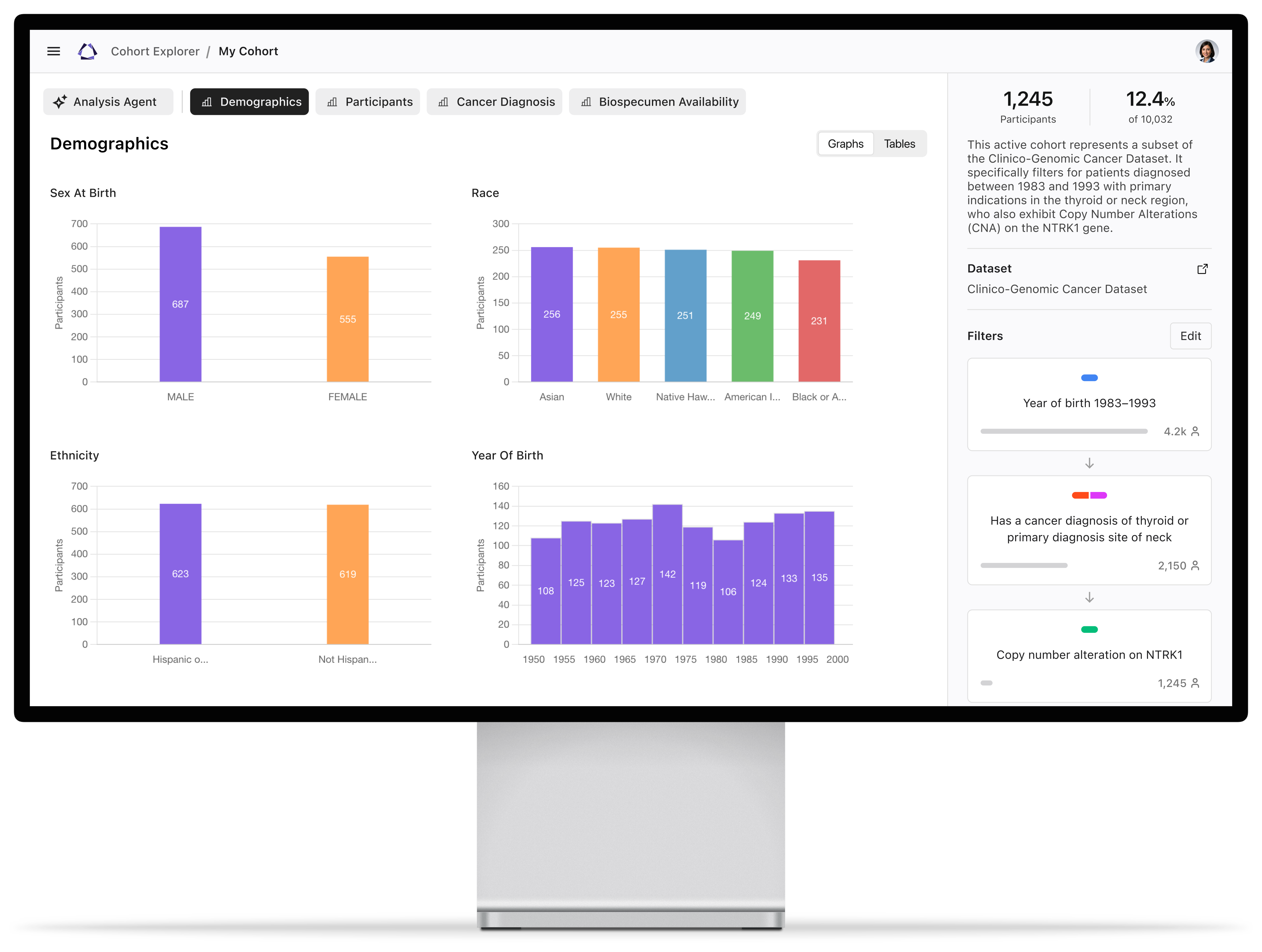
Reduce Time to Insight from Months to Minutes
Augment the work that slows down progress—cleaning data, debugging pipelines, and building cohorts.













Augment the work that slows down progress—cleaning data, debugging pipelines, and building cohorts.

Transform your data into a shareable, AI-ready foundation for internal insight and external collaboration.
.svg)
Bridge scientific questions with the data, tools, and knowledge required to answer them.
.png)
.png)

Agents interpret questions in natural language, prepare the right datasets, and run the appropriate analyses.

With context engineering, agents translate natural language instructions into accurate analyses and workflows.
.svg)
When scientists can serve themselves, data teams can focus on higher-value engineering, modeling, and platform work.

Accurate, standards-aligned results come from agents grounded in your data and tools.

Agents configure and run the right analytical tools, from Python and R to specialized life sciences pipelines.
.svg)
Agents turn fragmented, multi-modal data into an analysis-ready foundation tailored to your institution’s science.
.jpg)


Manifold provides enterprise-grade security with fine-grained access controls and end-to-end encryption.

Manifold aligns with industry and regulatory standards including: NIST 800-171, TX-RAMP, and SOC 2 Type II.
.svg)
Built-in HIPAA and GDPR compliance keeps your data aligned with the world’s most rigorous privacy standards.
Explore Manifold's core solutions
.avif)
.png)
Fit-for-purpose solutions for clinical research leaders in cancer and rare disease.
Streamline legacy systems and manual processes with a single study and data management platform.
Reduce and turnaround time and increase productivity by connecting biospecimen data and clinical data in a single data management platform.
Unify clinical and multimodal data on a modern platform to enable automated data preparation into a research-ready patient model.
Answer research questions about diagnoses, treatments, and outcomes quickly and easily.